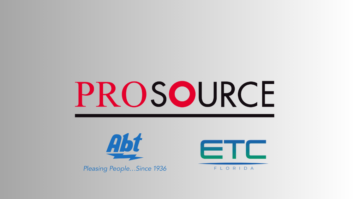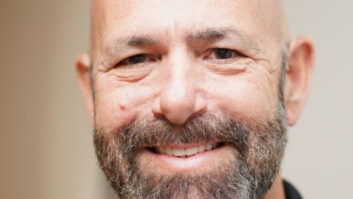Update! Dayton, Ohio — Appliance Direct, the 20-store white-goods chain in Central Florida, has assumed the leases to 39 Rex Stores, will pursue 44 more, and will purchase Rex’s Whirlpool inventory and store fixtures.
The initial 39 locations include 37 stores that are owned by Rex and two that are leased by the CE and appliance chain. According to a Feb. 2 filing with the Securities And Exchange Commission (SEC), Appliance Direct has agreed to negotiate in good faith for the remaining 44 stores.
Under terms of the deal, which was reached last week, Appliance Direct will lease the stores for just over six years at an annual rate of $65,000 to $85,000 per location, and will have an option to renew the leases for another five.The chain will also have the option of purchasing all of the real estate during the first two years at a cost of $70 to $76 a square foot.
Rex’s 37 leased locations alone total 467,000 square feet.
Appliance Direct will also buy out Rex’s Whirlpool inventory at a wholesale price to be determined by the manufacturer. Whirlpool will reimburse Rex for the merchandise, and Appliance Direct will in turn pay Whirlpool directly or through a third-party financing arrangement.
Appliance Direct may also purchase Rex’s Frigidaire inventory.
The deal could wind up costing Rex as much as $3.8 million in employee severance, professional fees and payouts to cover the liability of extended-service plans it sold on the Whirlpool and Frigidaire appliances.
The agreement gives the closely held Appliance Direct instant multiregional stature and provides a retail exit strategy for Rex chairman/CEO Stuart Rose, who will focus instead on his investments in ethanol production.
Rose said in a December conference call that the company was evaluating two separate proposals to restructure its retail business, and that a decision would be reached by the end of Rex’s fiscal year on Jan. 31. The chain, which at its height had more than 260 stores that stretched across 37 states in the Midwest and Southeast, announced in June it had hired an outside firm to conduct a “strategic alternative review process” of its retail operations. At the time, Rose described Rex’s disparate retail, real estate and ethanol production businesses as “an awkward combination.”
Rex began shedding stores in 2007, when it entered a real estate sale and leaseback deal with Coventry Real Estate Investments. Under terms of the arrangement, Rex sold 94 operating and closed stores to Coventry for about $84 million, and leased back at least 40 of the locations.
As of June 2008, Rex owned 49 stores, including 10 shuttered locations, and leased 72. It maintained two distribution centers, in Dayton, Ohio, and Pensacola, Fla., and recently sold a third in Cheyenne, Wyo., for $5.1 million.
Rex’s retail sales tumbled 22.8 percent year over year to $41.2 million during its previous quarter, ended Oct. 31, while same-store sales, excluding sales of extended-service contracts, fell 13.6 percent.
Income from continuing operations for the multiregional CE and appliance chain rose 12.3 percent to $2.8 million during the period.
Appliance Direct, run by CEO Sam Pak and president Mark Salmon, is headquartered in Melbourne, Fla., and is known throughout the state for its aggressive, price-driven TV campaigns. The chain was ranked 22nd on the TWICE Top 100 Major Appliance Retailers Report — ahead of Kmart and behind Sears’ The Great Indoors — with $86 million in sales in 2007, down 16 percent from the prior year.
The sale of Rex marks the end of another chapter in CE and appliance retailing. The company began in a hotel storefront as Rex Radio in 1926, and was acquired by Rose as a four-store Ohio chain in 1980. Rose, a mergers and acquisitions broker and founding member of the NATM buying group, built the company into a regional powerhouse by also acquiring the TV & Stereo Town and Kelly & Cohen retail chains in highly leveraged deals.
Rose took the company public in 1984 to help pay down debt and open more stores, setting the stage for a series of retail expansions and retrenchments over the past 20 years.











